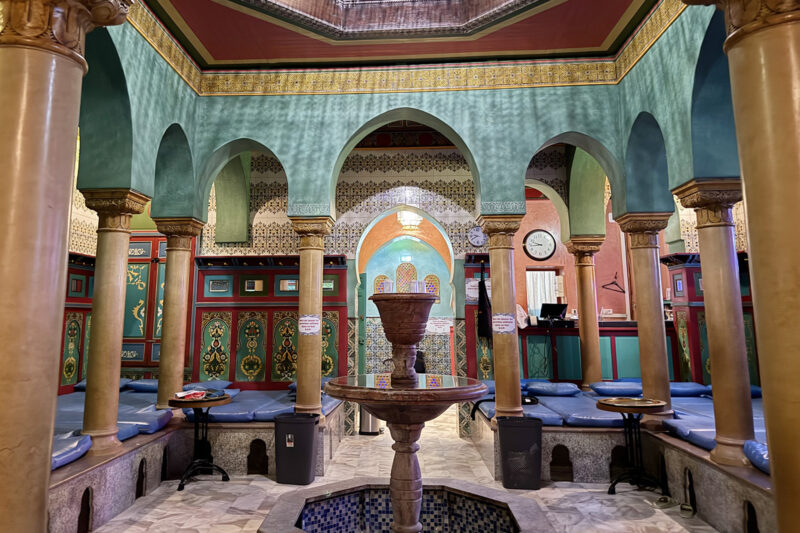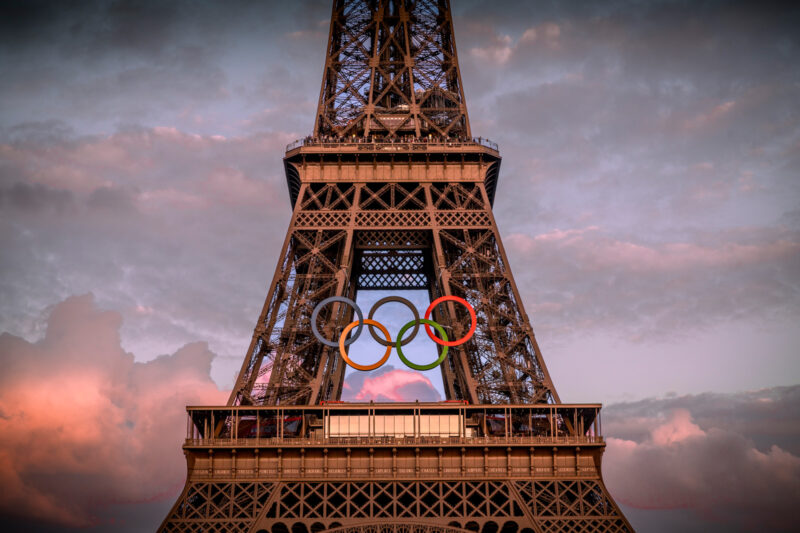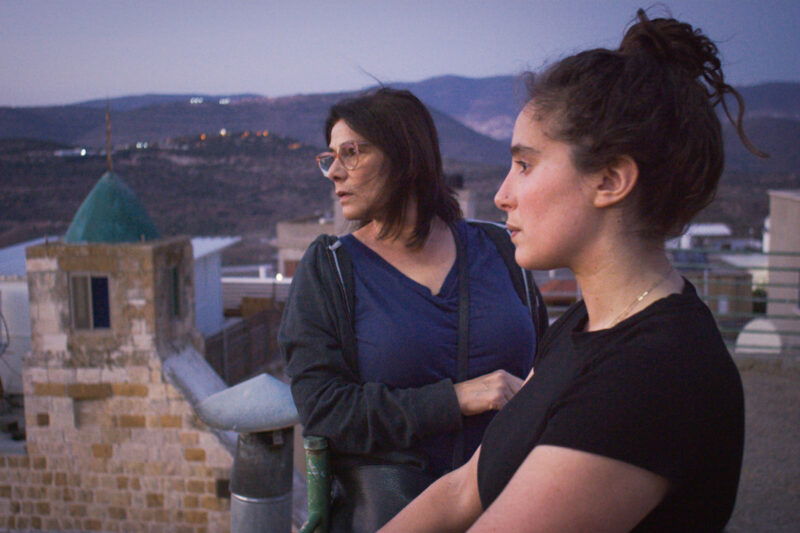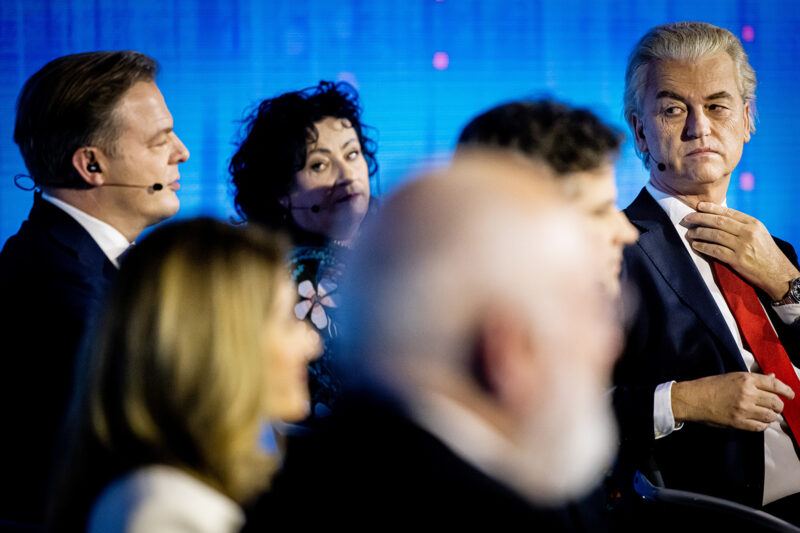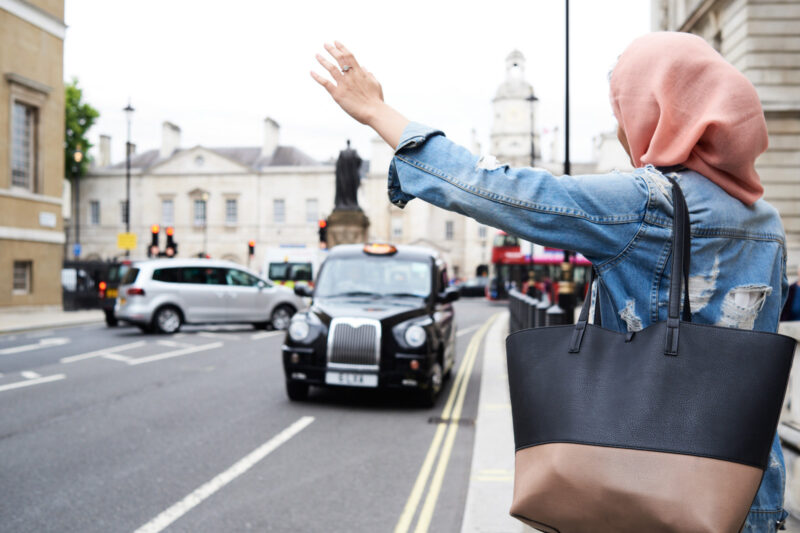France moves closer to a total ban on hijabs
As the French parliament mulls a complete ban on the wearing of headscarves in all sporting competitions, Hyphen examines the country’s long campaign against Muslim coverings
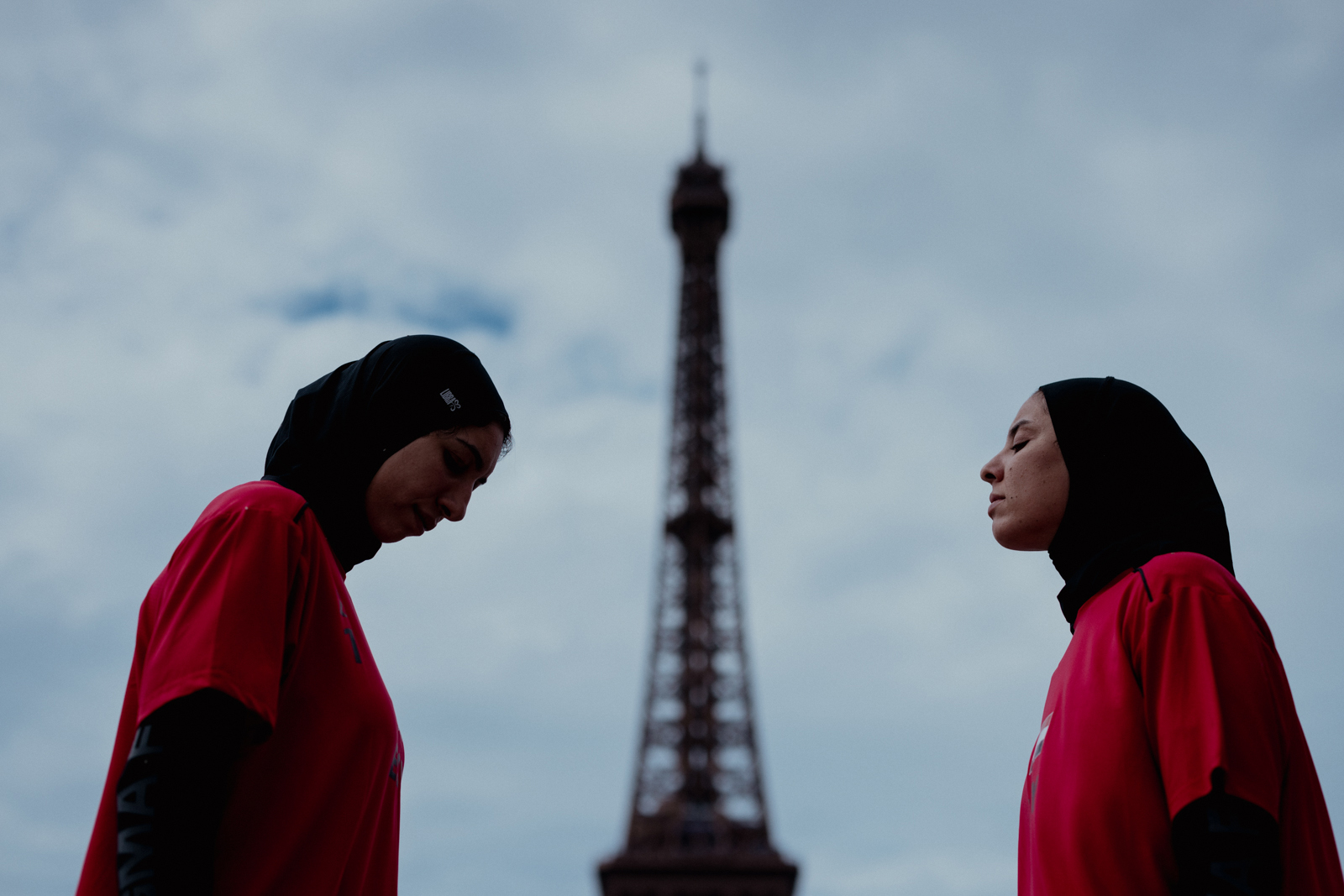
A proposed law prohibiting athletes from wearing headscarves in all sporting events is expected to be voted on by the French parliament’s lower house, after being approved by the upper chamber, which is dominated by the rightwing Senate Republican group.
Prime minister François Bayrou has reportedly distanced himself from the proposed legislation – despite his initial support – saying: “We must not stigmatise our nine million Muslim compatriots.”
The issue has caused a rift in the French cabinet. While education minister Élisabeth Borne has expressed reservations about the ban, minister of justice Gérald Darmanin has said he will resign if the government does not back the bill.
Similar bans have already been adopted by individual French sporting associations. The wearing of hijabs is prohibited at all levels of French football, basketball and volleyball competition, including amateur. During the 2024 Summer Olympics, hosted in Paris, athletes competing for the French national team were prohibited from wearing hijabs.
Amnesty International, among other human rights organisations, has said the ban violates the human rights of Muslim women.
However, since 2004 prohibitions on how Muslim women can dress have spread to many areas of public life in France, not just sport. It is illegal in France to wear face coverings, such as niqabs, in all public spaces, while hijabs and abayas have been banned in state schools since 2023.
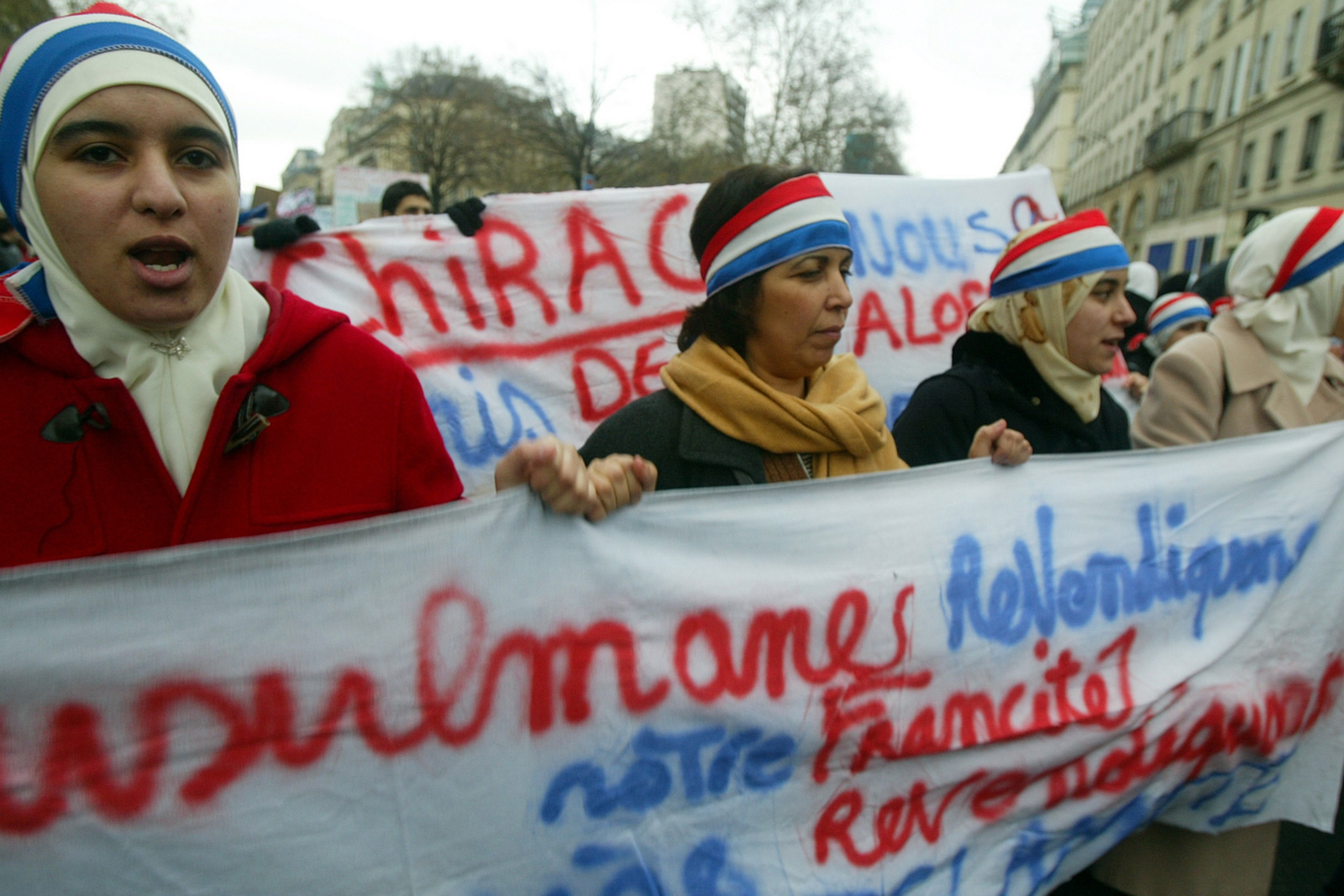
Additionally, several local authorities have attempted to ban burkinis, a type of modest swimwear, at public beaches – however the attempts have been struck down by French courts. Nonetheless, burkinis remain banned in all public swimming pools in France and attempts to lift the ban by the city of Grenoble were struck down by the courts in 2022.
The penalties for violating the niqab and burkini bans include fines and mandatory citizenship courses. In the first year of the niqab ban, 299 women were fined for wearing the garment.
Mobashra Tazamal, associate director of Georgetown University’s Bridge Initiative, a research project investigating Islamophobia, said that hijab bans have been proposed by French parties across the political spectrum and have become a sure vote winner.
“In France, hijab bans are low hanging fruit. They are clear to understand, they don’t require voters to read any legislation,” she said. “The narrative is that the hijab is a threat to our national identity or security. They are very easy to advocate for without facing any sort of political pushback.”
While there have been protests against the bans from civil society organisations and individuals, Tazamal said that political pushback has been minimal.
“The bans get more and more absurd as the time goes on because there is no politically organised voice opposing it,” Tazamal said.
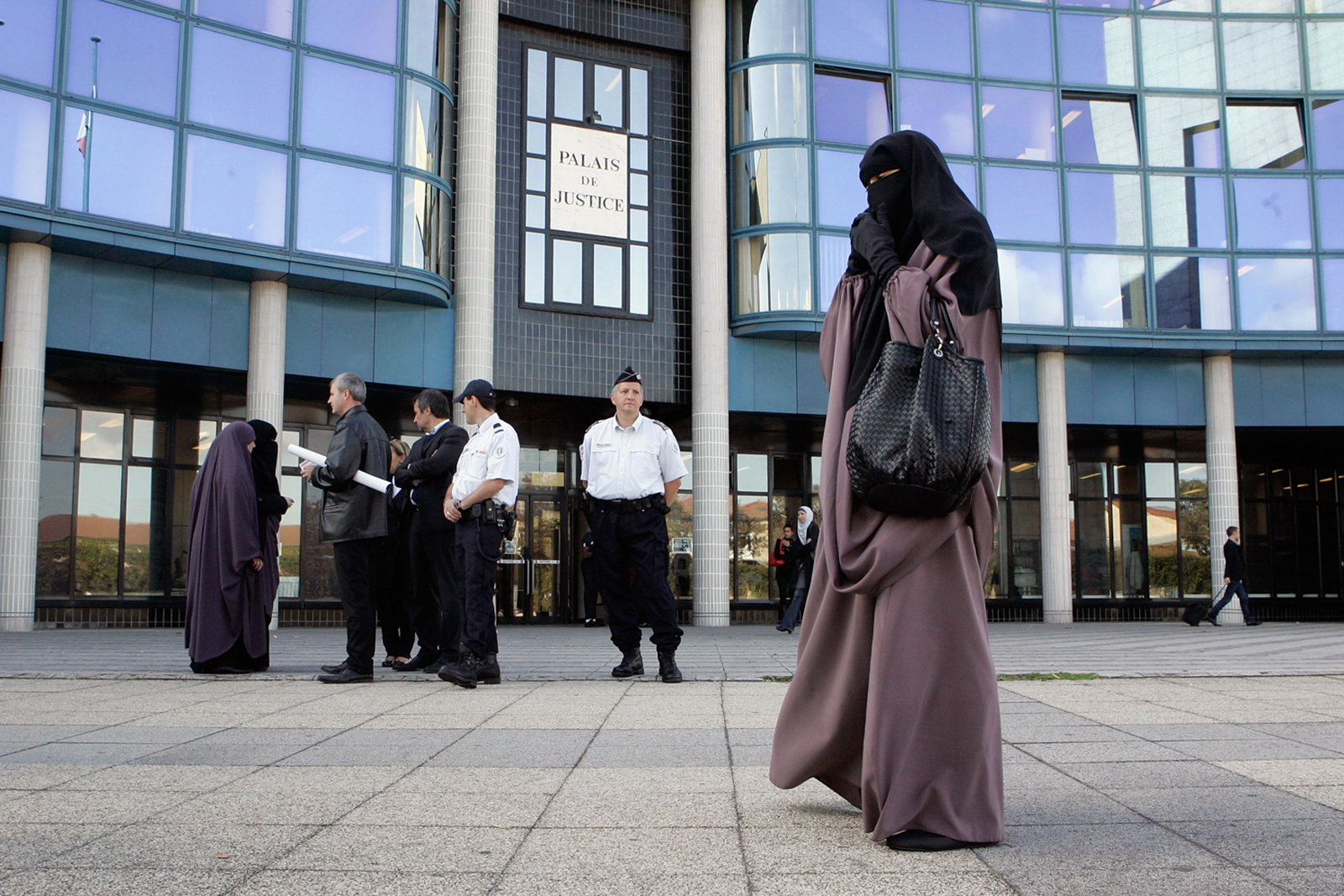
Laïcité – what is it?
Laïcité, the French concept of secularism, meaning the strict division of state and church, is often invoked by French politicians seeking to restrict how Muslim women dress. The name of the current draft law is: bill to assure respect of the principle of secularism in sport.
The laïcité law was originally intended to oblige the French state to remain religiously neutral while guaranteeing religious freedom to citizens.
“This law was first introduced in 1905 and was very progressive at the time,” said Rim-Sarah Alouane, a legal scholar at Toulouse Capitole University. “The state and civil servants were obliged to be religiously neutral, while the freedom of religion and freedom of conscience of private citizens was protected. It was not until the 1980s and 1990s that this liberal view of laïcité began to shift and became an illiberal tool to target some religious minorities, particularly Muslims.”
The secularism law also means that the legislation banning religious dress, such as the abaya ban in schools, remains vague.
“The law does not define what an abaya is and the law cannot define what it is,” said Alouane. “The division of state and church means that the legislature cannot issue definitions of religious symbols, so you will not find a legal definition of a headscarf or an abaya anywhere.”
Instead, Alouane said, it is left up to headteachers to make sure that their school complies while being issued with little to no official guidance.
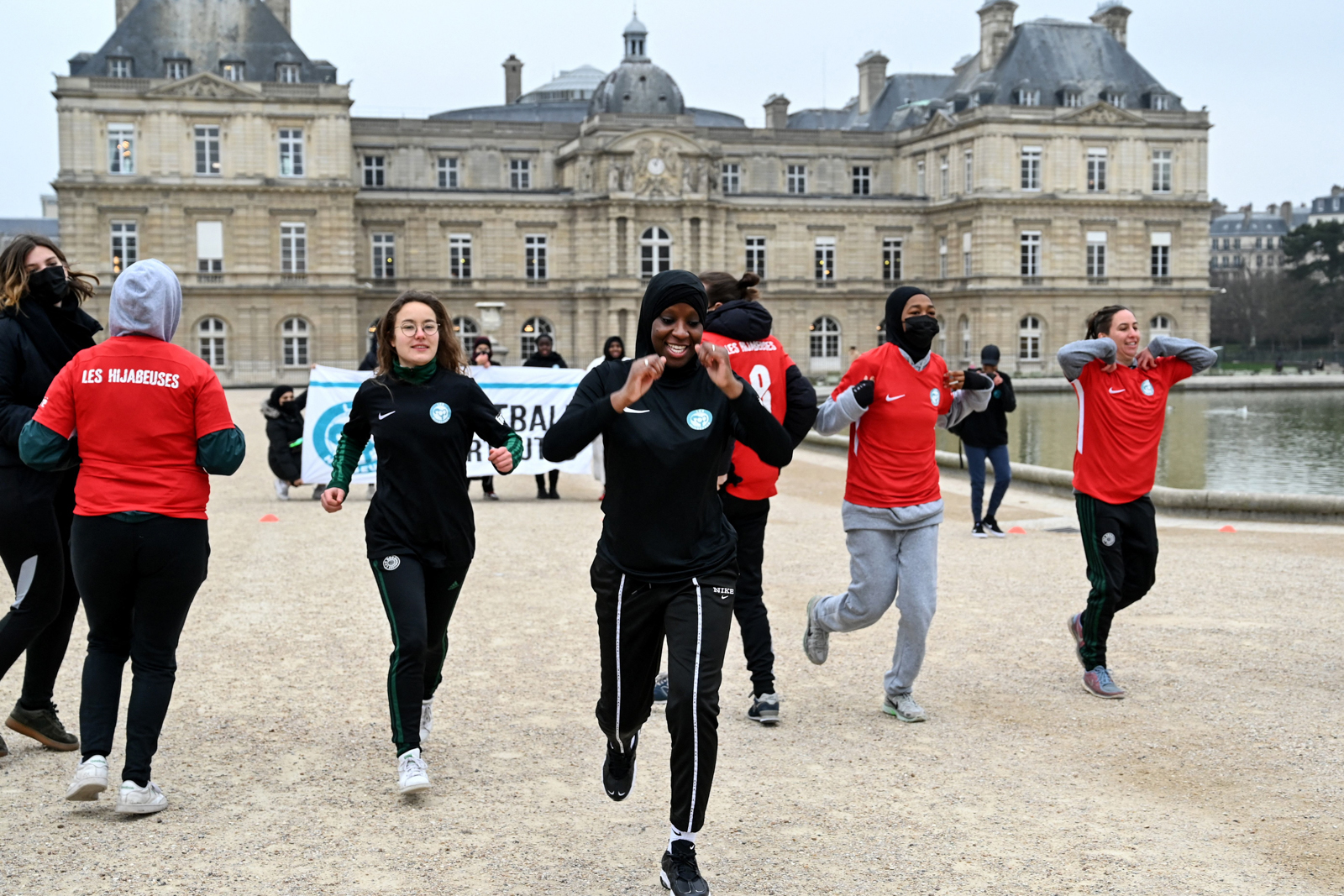
Timeline of French hijab, niqab and abaya bans
2004 – ban on hijabs in state schools
The French parliament passed a law banning “ostentatious religious symbols” in state schools. While the ban extends to all religious clothing such as yarmulkes or crucifixes, it disproportionately affected the ability of Muslim girls to cover their hair.
2007 – ban on public sector workers wearing hijabs
The law was extended to anyone delivering a public service, effectively banning teachers, police officers, firefighters and other employees of the French state from wearing the hijab at work.
2010 – ban on face veils in public spaces
France became the first EU country to pass a nationwide ban on niqabs in public spaces, including parks, streets and public transport. Women in France are still allowed to cover their face as a passenger in a private car.
2014 – French Football Federation introduced its own hijab ban
After Fifa overturned its ban on the hijab, the French governing body introduced its own rules prohibiting players from competing in hijabs or wearing other religious symbols.
2016 – municipal burkini bans overturned by the Council of State
France’s highest administrative court, the Council of State, overturned laws introduced earlier that year in at least 15 towns banning modest swimwear on public beaches.
August 2023 – abayas and thobes banned in state schools
Abayas and thobes, long loose garments worn by men and women in many Arab countries, were banned as religious symbols in state schools.
September 2023 – Olympics hijab ban
The sports ministry announced that French athletes would not be allowed to wear sports hijabs while competing in the Olympics.
 Newsletter
Newsletter



